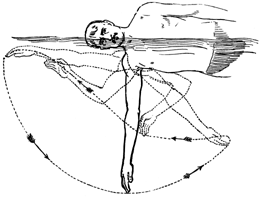
In earlier post Western Union Stops Telegrams I wrote about a whole new passle of users out there some call "Smart Mobs" that communicate via their fingertips using text messaging technology. In my last post I introduced you to Ben, a college student who communicates with his buddies online via AOL's Instant Messenger. Along with 5 million others, Ben helped create a viral blizzard for the NBC video clip from Saturday Night Live called Lazy Sunday.
Reuters reports today that in Britain, Ben's peers have new disability, where Text Text Messaging Boom Leads to Digit Damage. There mobile text messaging has become so popular that " millions of users no suffer injuries to their thumbs and fingers because of their love of keeping in touch," reports Reuters on a recent survey conducted for Virgin Mobile.
Over 93.5 million text messages are sent every day but all this digit action has lead to an explosion in people reporting cases of repetitive strain injury (RSI).
Thirty-eight percent more people suffer from sore wrists and thumbs due to texting than five years ago and 3.8 million people now complain of text-related injuries every year.
The survey for Virgin Mobile found the texting phenomenon shows no sign of slowing. Over 12 percent of the population admit to sending 20 texts per day and 10 percent confess to sending up to 100 texts every day.

Charles Darwin studied biological adaptation in the Galapagos, where finches over generations on isolated islands developed different beaks to help them forage for food. Question from this scientifically challenged blogger....Will the fingers of the grandchildren of Smart Mobbers evolve as well?
That question leads me find an expert online to ask that question. Stay tuned for another N.I.C. ( Netizen In Cyber Space )posting.
In 2003, Howard Rheingold writes in his must-read book, Smart Mobs:
I learned that these teenagers and others in Japan who were staring at their mobile phones and twiddling the kepyboards with their thumbs were sending words and simple graphics to each other--messages like short e-mails that were delivered instantly but could be read at any time. When I looked into the technical underpinnngs of telephone texting, I found that these early texters were walking around with an always-on connection to the Internet in their hands. The tingling in my forebrain turned into a buzz. When you have a more persistent connection to the Internet, you have acess to a great deal more than a communication channel."
A 12-Step Program for Text Messagers?
One risk, for these text-enabled communicators, say some psychologists, is that it can make these peeps " uncomfortable with more intimate facto-face conversations." In fact these same professionals cite their worry about a new culture developing addicted to "excessive text messaging." Will future professional conferences for psychologists feature seminars on teatment for ETMD, ( Excessive Text Messaging Disorder) ?
World's Fastest Texter
Last year Scottish factory worker Craig Crosbie was crowned the world's fastest texter after he took just 48 seconds to type out the 160-character message: "The razor-toothed piranhas of the genera Serrasalmus and Pygocentrus are the most ferocious freshwater fish in the world. In reality they seldom attack a human."
Whew. Try to type that yourself. It's daunting. Especially for me a hunt and peck typist. My mother told me in school not to learn toucgh typing or I would end up as a secretary.
Earlier in India a similar contest was held where Karan Sachdev, a second year student of Delhi University, was crowned Indian SMS king. He punched the same message as Crosbie in 66 seconds, in what The Times of India says was a " tough competition."
Music Fun Life conducted an online poll of its visitors, many of whom are avid text messengers. They asked: "Craig Crosbie as just crowned the world's fastest texter. He completed a complicated twenty-five word message in just forty-eight seconds. Is texting killing the art of conversation?"
44.44% said "yes" and 55.56% said " no."
What do you think?
No comments:
Post a Comment